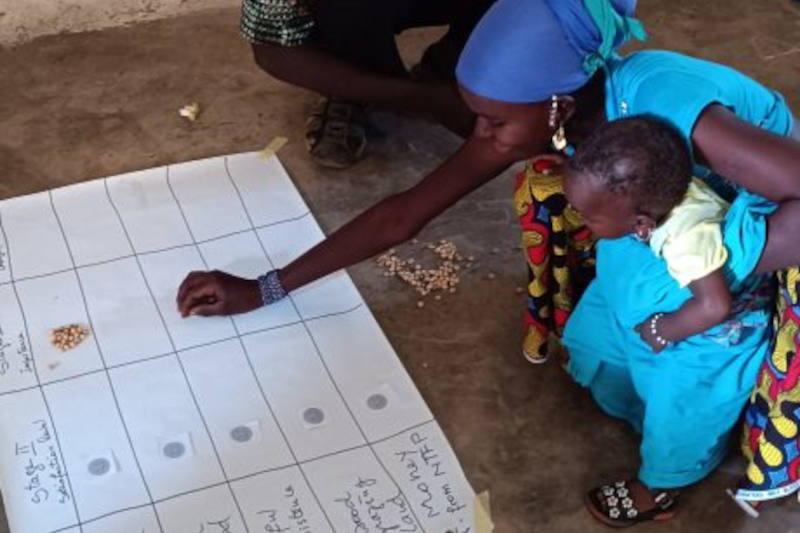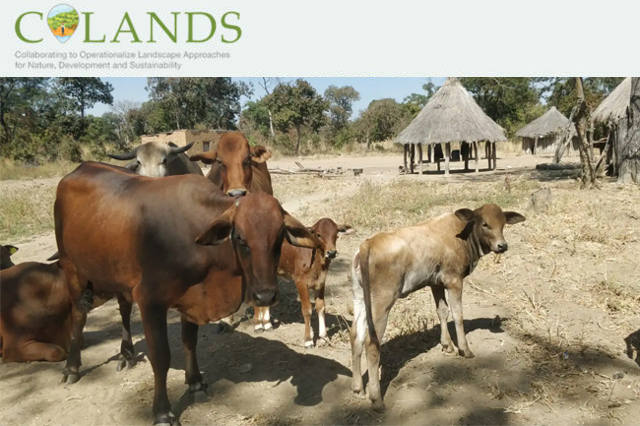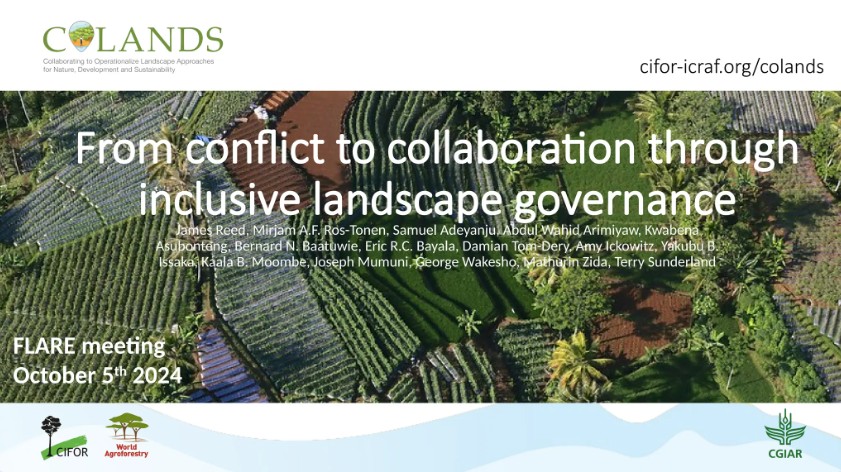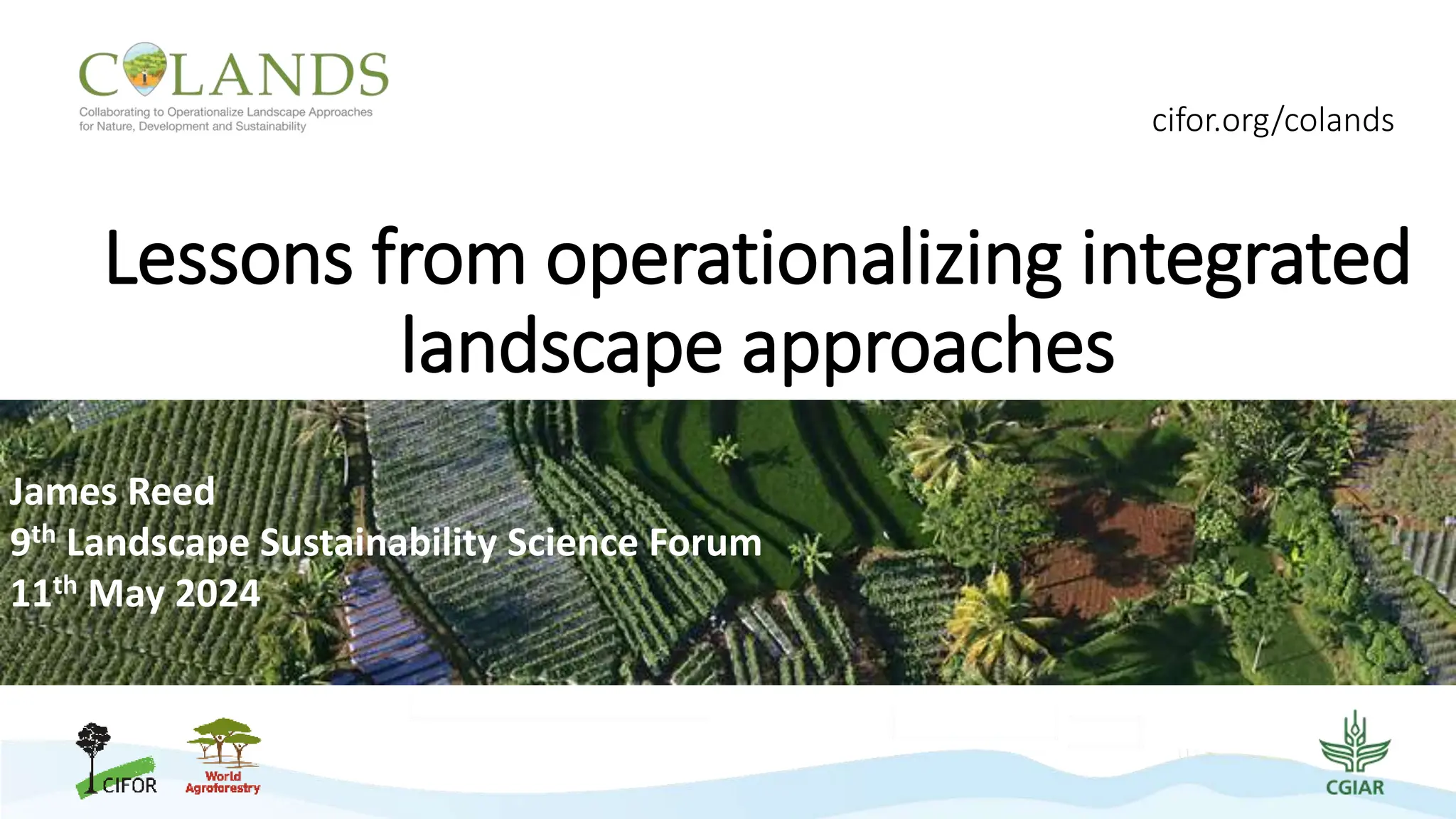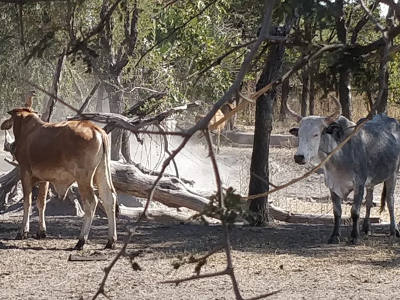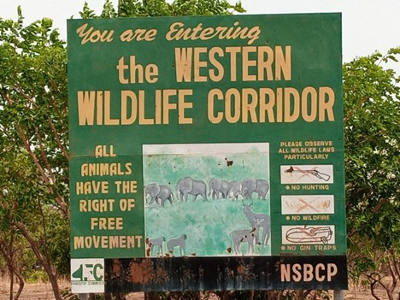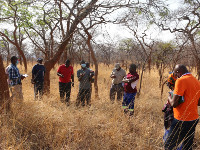Collaborating to Operationalise Landscape Approaches for Nature, Development and Sustainability (COLANDS)
Multifunctional Landscapes for Biodiversity Benefits
WHO WE ARE,
WHAT WE DO
The initiative “Collaborating to Operationalise Landscape Approaches for Nature, Development and Sustainability (COLANDS)” works with partners and engages multiple stakeholders in innovative research related to Integrated Landscapes Approaches (ILAs).
As a governance approach, an ILA may coordinate work to reconcile such local/global challenges as climate change, biodiversity loss, food insecurity, and poverty while generating multiple benefits for people in the landscape. ILAs can also enhance resilience and inspire change.
The COLANDS initiative approaches its work as a collaborative effort, particularly in three study locations: Ghana’s Western Wildlife Corridor; southern Zambia’s Kalomo District; and, Indonesia’s Seriang and Labian Leboyan watersheds in Kapuas Hulu, West Kalimantan.
Our founding partner is the Center for International Forestry Research-World Agroforestry (CIFOR-ICRAF), a leader in global research on the most pressing challenges of forest and landscape management.
Explore this website to learn more about COLANDS and its continuing, innovative research into critical landscape issues, including forestry and other productive processes; as well as the essential work of engaging multiple stakeholders.
Project news
Publications
Presentations
COLANDS in the news

These are all words commonly used to describe a tree, a tree so special in West Africa that it is at the centre of most important life rituals. When a woman gives birth, she lathers her baby in a butter made from the shea tree to protect delicate skin from the hot sun.
Interwoven landscapes pose complex challenge
Over the past six years, conversations on sustainable forest management activities focused on transforming the way the international community addresses poverty, food insecurity, climate change and …
Although the term “landscape approach” initially left some people scratching their heads, over the past six years it has gelled into a much-lauded concept for sustainable land management in the agroforestry sector and beyond.
An independent dispute resolution mechanism exists; for more information please follow this link:


